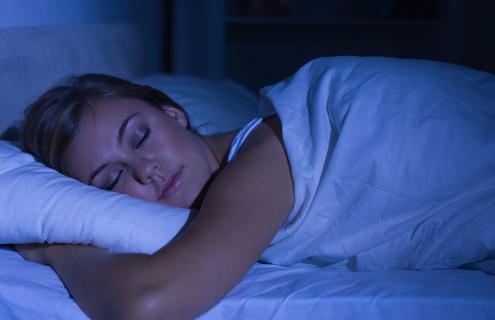
It may seem obvious that sleeping is important—most of us feel awful and function badly when we don’t get much of it, and the effects of sub-par sleeping habits can be cumulative over time. In fact, the average sleep duration for American adults has decreased in the last two decades and a recent study showed that 40% of adults report getting less than 7 hours of sleep on weekdays.
The benefits of regular, good quality sleep
The good life. If a better daily mood, better memory, increased attention and increased ability to learn will help you achieve your life goals, then make a plan to get a good night’s sleep.
Preserve good health. Over time, poor sleep can contribute to an increased risk of obesity, diabetes, high blood pressure, coronary heart disease, stroke, poor mental health, and even early death.
Speeding recovery. While there is conflicting evidence about sleep’s effect on healing wounds (unless you have type 2 diabetes, in which case sleep can make a dramatic difference), adequate sleep helps sustain the functioning of your immune system, and scientists recently discovered the gene that both promotes therapeutic sleep and assists with recovery from infection.
What counts as regular sleep?
The baseline amount of sleep adults need each and every night can vary from as little as 6 hours to 10, with a goal of 8 for most of us. Young individuals need even more sleep while their brains are developing. The CDC recommends that, including naps, infants need 12-16 hours, toddlers 11-14 hours, pre-school age children need 10-13 hours of sleep, children 6-12 years need 9-12 hours and teens 8-10 hours. This means consistent bedtimes and routines essential on school nights.
What is good-quality sleep?
Good quality sleep means that you typically fall asleep in 30 minutes or less, sleep soundly through the night with no more than one awakening, and drift back to sleep within 20 minutes if you do wake up.
On the flip side, bad sleep quality is the kind that leaves you staring at the ceiling in frustration, then grumpy and dragging from exhaustion the next day. Some may have trouble falling asleep and staying asleep, experience restlessness, and early awakenings. If you feel sleepy or tired even after getting enough sleep or have symptoms of a sleep disorder (such as snoring or gasping for air), you should talk to your doctor.
How can I improve my sleep?
An estimated 50–70 million people in the United States have chronic sleep and wakefulness disorders that require medical help. If you struggle to get eight hours of good quality sleep per night—even when you prioritize it in your routine—your doctor will likely recommend these steps first:
- Choose a daily bedtime that allows for you to get 8 hours of sleep, even if it can take you half an hour to fall asleep, then stick to it. Yes, that means weekends too. Try the Sleep Cycle app or Apple’s Bedtime settings.
- Daily meditation before bedtime to reduce decision-oriented beta brain waves, increase melatonin, and experience more deep REM sleep cycles. If you are new to meditation, try some guided meditations aimed at enhancing sleep.
- Avoid stimulants like nicotine and foods that contain caffeine (chocolate, soda, coffee, tea) before bed. Many find that eliminating caffeinated beverages after lunch aids deep sleep at night.
- Avoid alcohol close to bedtime. Even though it can make you feel sleepy, your sleep is usually disrupted as your body metabolizes the alcohol throughout the night.
- The same goes for eating a large meal before bed—both digestion of a big meal and hunger can disrupt your sleep, so opt for only a light snack within an hour of your bedtime.
- Get regular exercise, but not too close to bedtime unless it is gentle yoga. Daytime exercise increases quality sleep, but exercising in the evening can leave you wired.
- Avoid blue light (like your phone, tablet, T.V. or cool-toned LED lights) within an hour of bedtime. Most modern devices have a “night time mode” that blocks blue light between the hours you choose if you have to use a device close to bedtime, but a digital detox for an hour before bed is even better.
- Use a white noise machine, fan or air purifier or earplugs so you are not awakened by small noises. Some find listening to “Theta Wave Music” helps soothe them to sleep.
- Make sure your environment is comfortable: dark, cool, and peaceful. A sleep mask can make a real difference in sleep quality and a mattress that suits your needs is one of the most valuable investments you can make for your health and wellbeing.
If you frequently have trouble sleeping, talk to your primary care provider. Each primary care team at Cheshire Medical Center works with behavioral health specialists who specialize in helping our patients get better sleep.